Asus introduces the first notebook with next-gen Wi-Fi

One of Broadcom's goals for 2012 is to bring to market new hardware that supports the fifth-generation of Wi-Fi networking standards, 802.11ac. At CES 2012, Broadcom debuted its first 802.11ac chips, then rolled out more designs in the following months so device manufacturers could take advantage of the faster throughput the new standard allowed.
Asus, D-Link, Huawei, and LG all have announced plans to support 802.11ac with consumer hardware, and this week, Asus and Broadcom unveiled the first consumer-facing notebook computer to feature full 802.11ac compliance, the Asus ROG G75VW gaming notebook.
4G LTE: 1 billion served by 2017
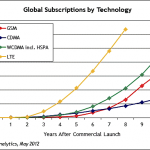
Unsurprisingly, 4G LTE is the fastest growing cellular network technology, in part for what it delivers and deployment's timing. Strategy Analytics forecasts that 4G LTE will reach 1 billion connections, or 15 percent of all, by 2017. That compares to 12 years for GSM and about 11 years for WCDMA to reach as many.
But LTE isn't gain without pain. In the United States, Verizon by far and large has the most expansive 4G network, reaching 250 metro areas and 200 million Americans compared to 38 metros and 75 million people for AT&T. Adoption still is fairly low, perhaps because phone subscribers don't understand the value. Meanwhile, Verizon will axe grandfathered unlimited plans when subscribers upgrade to LTE. There's pain for the gain.
Verizon Wireless agrees to sell off wireless spectrum pending $3.6B cable deal
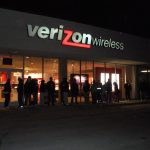
Mobile network operator Verizon Wireless on Wednesday announced it will be auctioning off all of its 700 MHz A and B spectrum licenses if it can obtain the AWS licenses from SpectrumCo, a joint venture held by the United States' biggest multi-network operators: Comcast, Time Warner Cable, Bright House Networks, Cox, and Leap Wireless.
Last December, SpectrumCo announced it would be selling 122 licenses in the AWS spectrum to Verizon Wireless for $3.6 billion so the wireless carrier could further build out its 4G LTE network, which currently resides in the upper C band in the 700MHz block.
'This summer, when hunger strikes, and all hope seems lost, a small device will change your destiny' -- the VIP Fridge Magnet

Pack my bags, I'm moving to Dubai.
Local shop Red Tomato Pizza promises to make available a fridge magnet that you tap to place orders. For all I know, it's all gimmick. The promotional YouTube video is a smart production. Spoiler: You will want to order pizza after watching it.
NTIA says public and private sectors could share 95 MHz of wireless spectrum for broadband

This week, the U.S. Department of Commerce and the National Telecommunications and Information Administration (NTIA) announced that they have isolated 95 MHz of "prime" wireless spectrum that could be repurposed for mobile broadband uses.
The 1755–1850 MHz band was examined by NTIA as potentially viable for commercial wireless broadband services (.pdf here.) Currently, more than 20 federal agencies own more than 3,100 individual frequency assignments in this band. Their uses range from law enforcement surveillance, to military tactical communications, to unmanned aerial vehicles, to guided munitions.
2012 is LTE's 'breakout' year
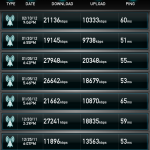
While the buzzword in mobile in 2011 was LTE, consumers by and large did not respond to the hype. Only 6.8 million LTE devices sold worldwide -- a small drop in the bucket of annual phone sales. Strategy Analytics says that's about to change in a big way.
The firm predicts shipments will increase by a factor of ten to 67 million units in 2012. The firm expects markets in the United States, Japan and South Korea to spearhead this growth, with a broader range of devices from manufacturers including Apple, Samsung, HTC, LG, Nokia, Motorola, Pantech and Fujitsu giving consumers more options.
AT&T blames FCC for T-Mobile layoffs
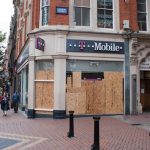
You'd never know that the execs over at AT&T are bitter about the failed T-Mobile USA merger or paying out $3 billion for absolutely nothing.
Yesterday, T-Mobile handed out 1,900 pink slips, mostly to employees working in call centers. Gee, that's not a vital area, now is it? Today, AT&T rallies to T-Mobile's defense, blaming not the nation's fourth-largest carrier but the Federal Communications Commission. AT&T's rationale: The carrier would have preserved those jobs if allowed to buy T-Mobile.
NetZero transforms the Internet once again

When NetZero burst onto the scene with the promise of free Internet for all in 1998, it was a transformative moment. No longer was the Internet a playground for the privileged: all you needed was a computer and a phone line, and you were online. The company is about to do the same for mobile data.
Starting today, NetZero is offering 200 megabytes of data free to anyone who purchases a dongle or hotspot from them. The dongle retails for $49.95, while the hotspot sells for $99.95. The service is provided through a partnership with Clear. With the purchase, NetZero's free plan will remain in effect for a period of one year.
AT&T will cut you off if your throttling case wins in court

Smarting over its loss in court -- a customer awarded $850 for shady throttling practices -- AT&T has taken the brazen step of threatening that person with termination of service if he doesn't agree to a settlement. Matthew Spaccarelli of Simi Valley, Calif. won his case in late February, and possibly laid the groundwork for thousands of other suits.
In a letter on Friday, AT&T uses Spaccarelli's own admission of tethering his device as grounds for termination if he does not agree to settlement talks. The carrier promises no additional compensation above the $850 already due and asks for confidentiality that settlement discussions are underway.
Tyranny of Numbers Two: Why cellular carriers can't meet data capacity

As I passed through the gates of the Mobile World Congress in Barcelona, Spain last week, it struck me that the protests outside served as a metaphor for a collection of conference keynotes that warned of the impending wireless capacity crunch. Neither had much to do with the sea of booths showcasing creative new data-intensive apps and ever-more capable smartphones and tablets. But sooner or later, both will prove to be disruptive to those who are trying to make a living selling the products on the show floor.
It only took a few days for the demonstrations along the Plaza de Espaňa to chip away at the exhibitors’ bottom line. The protests -- at first by public transport workers and increasingly by students objecting to budget cuts -- swelled from a curiosity into an impediment as they grew larger and more forceful. Traffic sputtered after police blocked the main entrance and forced attendees to exit out the back. Some left early. Others arrived later the following day to avoid the crush.
Prepaid credit card purveyor Green Dot scoops up Loopt
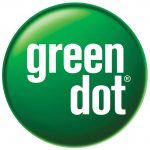
Marginalized by bigger competitors such as Foursquare and Facebook, mobile location company Loopt was acquired by Green Dot, a major provider of prepaid banking services on Friday. The deal is said to be worth $43.4 million and results in the shuttering of Loopt's current service at an unspecified future date.
Loopt's technologies will be folded into Green Dot's own services. In a statement, Green Dot says Loopt's technologies will form the basis of its planned mobile wallet offering. Loopt's patent portfolio is also of interest to Green Dot, which includes technology related to mobile marketing through real-time location-based messaging. The deal is expected to close by the end of the month.
LightSquared future in doubt as Sprint heads for the exits

LightSquared has struggled with the issue of GPS interference for much of its existence. It is this unfixable issue which threatens the company's entire business, and has its chief backer Sprint set to yank its support as early as next week according to sources.
A March 15 deadline (with unspecified conditions) looms for LightSquared in its deal with Sprint. While the companies will not disclose the terms of the deal, it's not out of the question to expect that this had something to do with its interference issues, as well as a clear way forward. With no strategy in place, Sprint has an opportunity to cut its losses now and move on.
Verizon stiffs 3G Android owners
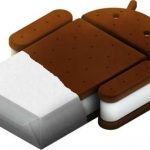
There's no Ice Cream Sandwich for you, baby. Verizon has announced the smartphones and other devices eligible to receive the sweet Android 4.0 dessert, and all but two are 4G LTE. That's right, if you're among the 95 percent of Verizon subscribers on 3G, and you've got Android, no upgrade is planned.
Only 5 percent of Verizon subscribers currently have LTE, even though the service is available to over 200 million in 196 metro areas. Verizon offers about two dozen LTE smartphones, tablets, netbooks and modems/mobile hotspots. Only 15 devices make the cut.
What if iPad HD isn't LTE?
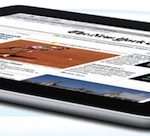
If iPhone 4S is any measure, perhaps LTE isn't important after all.
I asked the same question right before Apple announced the 4S in early October and honestly expected that 4G LTE would give Android handsets competitive edge. Not the least. According to Gartner, iPhone sales reached 35.46 million during calendar fourth quarter -- all without LTE. iPhone ranked tops in sales for the quarter and the year. The point: Sure, mobile geeks will pine for faster data. But will anyone else? Nah.
Should the government be able to shut down mobile networks in an emergency?

That is the big question the Federal Communications Commission (FCC) is asking right now in its latest call for public comment.
If there was an emergency situation, such as a mobile-triggered explosive device, or phone-organized "violent flash mob," could and should authorities be allowed to bring down all of the mobile communications networks?
Recent Headlines
BetaNews, your source for breaking tech news, reviews, and in-depth reporting since 1998.
Regional iGaming Content
© 1998-2025 BetaNews, Inc. All Rights Reserved. About Us - Privacy Policy - Cookie Policy - Sitemap.